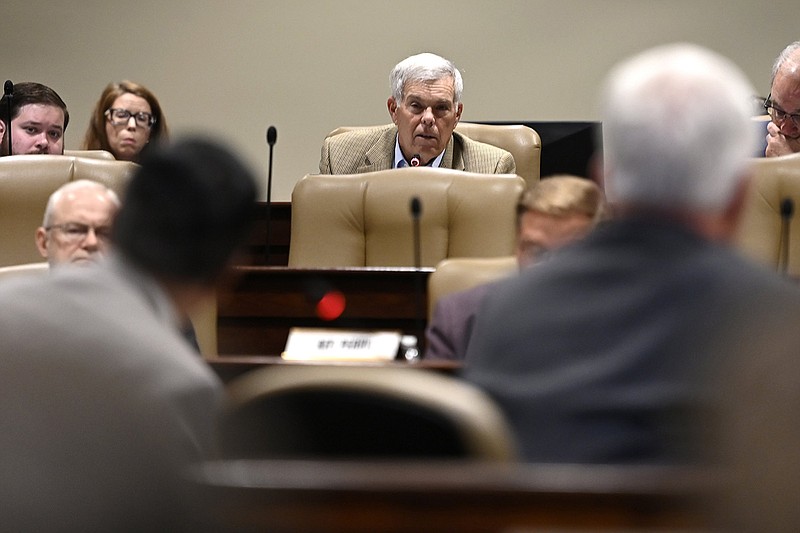An Arkansas legislative committee endorsed on Tuesday rules aimed at providing services by June 2025 to the more than 3,000 people on the state's waiting list for those with intellectual and developmental disabilities who want to stay in their homes and communities, as well as allowing parents or guardians to become paid staff under the waiver.
The House and Senate Public Health, Welfare and Labor Committee approved rules submitted by the Division of Developmental Disabilities Services, a division of the Department of Human Services, that would amend the Community and Employment Supports Home and Community Based Waiver. The rules still must clear the Legislative Council.
The program allows children and adults who have intellectual and developmental disabilities to remain in their homes and communities rather than an institution.
The rules that were approved are aimed at adding a sufficient number of waiver slots over the next three years to serve an additional 3,204 people. They also would add 200 more slots for children in foster care.
Keith Metz, spokesman for the Department of Human Services, said Tuesday the wait list is at 3,204.
"Just under 5,000 total clients being served via the waiver right now," he said.
Melissa Weatherton, director of the state Division of Developmental Disabilities Services, said this is an exciting time for the department.
"We did some preliminary work [last month] and we will begin working on those slots today," she said.
Weatherton said the rules also would add that legal guardians can be paid if they go through training. She said this was done in an effort to eliminate the burden of finding the workforce to address 3,000 additional slots.
"We currently don't have the workforce to handle 3,000 people over three years, so this allows family members to be paid as aid staff," she said. "We received positive feedback from families and providers who were concerned about capacity issues."
Weatherton said the rules previously wouldn't allow medical providers to hire parents or guardians as paid staff.
"Each employer can run their own business, and we will see various payments across the state," she said.
Every person who applies to be a paid guardian will have to undergo training by the medical provider's standards along with the standardized training.
"The standardized training is things like CPR, first-aid and mandated reporting training on how to call in an incident because it's required by federal mandate," she said. "This training is not too comprehensive and shouldn't take months on months to complete."
In December, Gov. Asa Hutchinson unveiled his plan to provide services by June 2025 to the people on the state's waiting list for those with intellectual and developmental disabilities who want to stay in their homes and communities.
The Legislature and the governor enacted the Arkansas Revenue Stabilization Act for fiscal 2023 earlier this year to increase the general revenue allocation for the Department of Humar Services' grants account, including Medicaid, by $23.5 million or 1.7%, to $1.39 billion, Bureau of Legislative Research records show. Fiscal 2023 started July 1 and ends June 30, 2023.
Act 546 set aside the first $37.6 million of funding allocated to the Department of Human Services' grant account to be used for Hutchinson's plan to reduce the waiting list of developmentally disabled people.
Documents that were provided by the Division of Developmental Disabilities Services state the total cost to implement this rule will be $53,785,000 for fiscal 2023 and $131,665,680 for fiscal 2024. Fiscal 2024 begins July 1, 2023, and ends June 30, 2024.
The total estimated cost to state, county and municipal government to implement this rule would be $13,919,558 for fiscal 2023 and $34,075,078 for fiscal 2024.
The total estimated cost to any private individual, entity, and business subject to the proposed rule would be $1,344,625 for fiscal 2023 and $3,291,642 for fiscal 2024.
